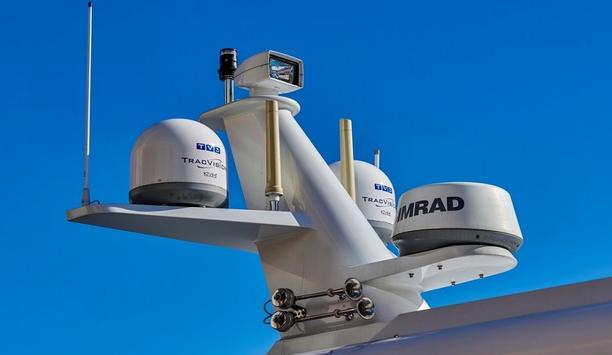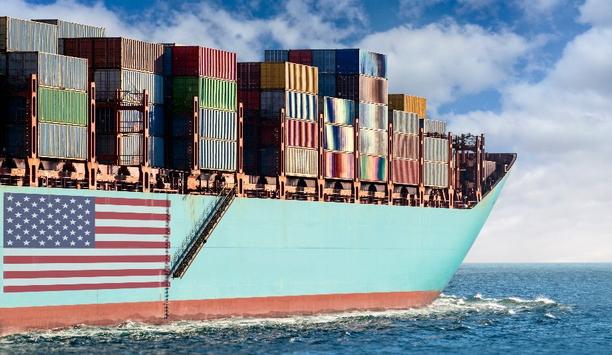Finance - Harbour insights
Ammonia is gaining traction as a future fuel in the maritime industry, primarily due to its potential to significantly reduce greenhouse gas emissions. A key driver for ammonia's interest is that it can be carbon-free when combusted, which aligns with the maritime industry's increasing pressure to meet emissions regulations. However, most ammonia production currently relies on fossil fuels. Transitioning to "green ammonia" production is crucial for sustainability. If "green ammonia" is produced...
The maritime industry is taking important steps to improve cybersecurity, catching up rapidly by introducing other industries' best practices into information technology (IT) and operational technology (OT) onboard vessels. Work remains to be done to ensure a cyber-resilient worldwide fleet of maritime operations. The way forward is through collaboration among all major stakeholders. Remote-controlled and autonomous ships In the future, the marine industry will increasingly use remote-control...
Augmented reality (AR) is making waves across various industries, and maritime is no exception. For maritime professionals, AR offers practical, real-time solutions that enhance safety, optimise operations, and improve decision-making both at sea and onshore. Whether it’s helping crews navigate complex environments, assisting in ship maintenance, or providing on-the-job training, AR’s ability to blend digital information with the physical world is proving invaluable in the fast-pac...
As the maritime industry accelerates its journey toward decarbonisation, the focus on alternative fuels has intensified. E-methane E-methane, a synthetic gas produced using renewable electricity and carbon capture, is emerging as a promising substitute for conventional natural gas. This innovative fuel offers a way to significantly reduce greenhouse gas emissions while leveraging existing liquefied natural gas (LNG) infrastructure. For maritime professionals, the potential benefits of e-metha...
The maritime industry, steeped in tradition, is now riding the wave of digital transformation, with big data playing a pivotal role in driving innovation and efficiency. For maritime professionals, the question isn’t whether to embrace big data, but how to maximise its practical benefits. Whether it’s a ship owner, port operator, or related to supply chain logistics, big data has the potential to streamline operations, enhance safety, reduce costs, and bolster profitability. This a...
U.S. President Joe Biden has signed an Executive Order aimed at shoring up the cybersecurity of U.S. ports, a move fuelled by mounting concerns about the vulnerability of this critical infrastructure to cyberattacks. This initiative marks a significant shift in policy, empowering key agencies and outlining concrete actions to bolster defences. By empowering key agencies, establishing clear standards, and fostering collaboration, the initiative aims to strengthen U.S. ports against the evolving...
The coronavirus pandemic highlighted the shortcomings in the maritime/intermodal supply chain. Consequences of the pandemic included volume surges, equipment dislocation and shortages, warehousing and affiliated labor shortages, and intermodal rail service disruption. Pandemic challenges across the supply chain Among participants throughout the global supply chain, the pandemic challenges underscored concerns about communication, interaction, and coordination. Because the system is so compl...
Millions of cargo containers are transported each year, and only a tiny fraction are lost at sea. However, the number of lost containers has increased in recent years, propelled by high-impact incidents that skewed the numbers upward. Factors impacting the higher number of lost containers include more violent weather events (due to global warming) and rough seas. Stresses on the global supply chain have led to higher numbers of containers loaded per ship and possibly less care being taken when...
As a crucial element in the maritime sphere, insurance is almost as basic as sea water. It has also been around almost as long, with concepts of insurance dating back to Hammurabi law in ancient Babylon. The first formal marine insurance policy still recognisable now was from 1350. Lloyd’s Coffee House was the first insurance market, in the late 1680s, evolving eventually into the world’s largest insurance marketplace. Looking to the future, insurance in the maritime sector is pois...
The Jones Act, also known as the Merchant Marine Act of 1920, has been in the news recently, both as an element in the supply chain muddle and related to the U.S. ban on Russian oil and gas. The Jones Act requires that ships operating between ports in the United States of America be constructed in the U.S., fly the U.S. flag, be owned by U.S. citizens, and be crewed only by U.S. citizens and U.S. permanent residents. The Jones Act The law was introduced by Senator Wesley Jones (R-Wash.) and be...
Backlogged ports, a shortage of shipping containers and not enough workers are among the factors contributing to supply chain disruptions that have led to shortages of various goods and are likely to impact availability of merchandise, during the upcoming holiday season. Demand is growing rapidly as the impacts of the COVID-19 global pandemic have diminished. However, lingering consequences of the pandemic are continuing to impact the container shipping market. With each element in the system t...
Shipment of goods around the world has continued throughout COVID-19, but the pandemic has afforded unprecedented challenges to the maritime industry. When the pandemic necessitated health restrictions and limited international travel, the impact on crew change practices was monumental. More than a million seafarers work in demanding conditions to support 80% of world trade. Crews were trapped on board vessels for months and months, unable to return home and extending their tours of duty indefi...











